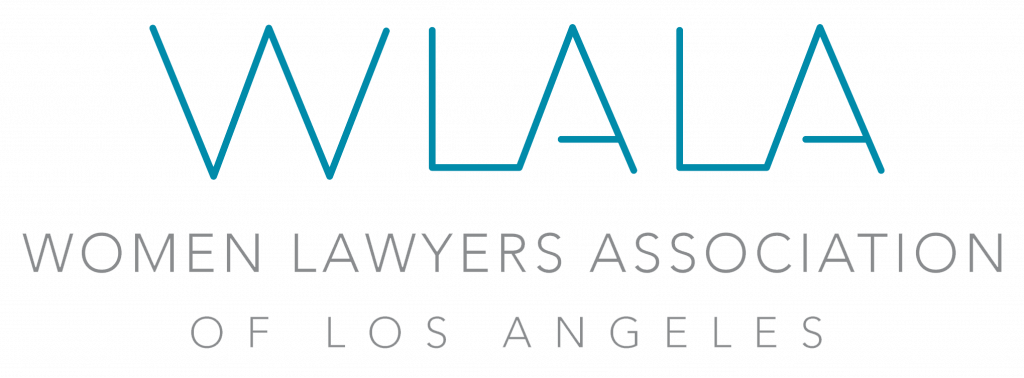Coalition and Call to Action

Call to Action 2021 and Signature Page
Signatories to the Call to Action agree that by 2026 they will have established initiatives in each of the three priority areas listed below to retain and advance women lawyers. Each signatory is free to choose the options that work best for that firm, or to create its own. To the extent a participating employer already has an initiative in place, the employer may choose to deepen its commitment to that initiative. For each option, signatories commit to ensuring that their initiatives identify and address the specific needs of diverse women, including women of color, LGBTQ+, women with disabilities, and women veterans.
Participating employers also agree to participate in a coalition with the LACBA- WLALA Joint Task Force to provide a forum for continued collaboration, cross-firm sharing of measurements of success, and a formal network of firm leaders with a continuing commitment to retaining and advancing women lawyers.
Promote the Advancement of Women
- Commit to Following the Mansfield Rule: “Consider at least 30% women, LGBTQ+, and attorneys of color for all leadership and governance roles, senior lawyer hiring, and equity partner/leader promotions.” Include female attorneys in client pitch meetings and on the teams for significant or high-profile cases, and give them leading roles on these matters.
- Evaluation/Compensation Metrics: Reevaluate and revise traditional evaluation and compensation metrics that have a disparate impact on women and people of color, including origination credit-based compensation systems for partners. Consider engaging professional consultants to assist with this process.
- Create Client Relationship Building Opportunities: Provide opportunities for women to develop internal relationships and client relationships that will contribute to the generation of business for the firm. Create opportunities for women attorneys to build long-term relationships and obtain leadership roles with key clients and take on leading roles on cases and transactions. Institute programs that allow for partnerships between in-house lawyers and firm lawyers on pro bono matters, and secondments with clients.
- Sponsorship: Work with senior female associates, counsel, and non-equity and junior partners to create and implement individualized business plans that best position them for business development and equity partnership, and and pair them with rainmakers and senior lawyers in management.
- Transitioning Client Relationships: Institute processes for the transition of primary client relationships to women when lead partners retire or leave the firm.
- Celebrate the Successes of Women Attorneys: Submit women’s names for professional awards and rankings. Highlight the successes of women internally and externally.
- Equity in Partnership: Women have represented 40 to 50 percent of law school graduates for over 30 years. Law schools now have a majority of women graduates. In recognition of the large number of women in the legal profession, seek to increase your current representation of women equity partners by 25% and women non-equity partners by 25% over the next five years. Work to increase your representation of women in future equity and non-equity partnership classes to at least 45 percent.
Institutionalize Your Commitment to Gender Parity
- Firm-Wide Women’s Initiative Committee: Create a firm-wide committee that includes male and female partners in firm leadership roles to monitor the progress and professional development of female attorneys at different stages of their careers and sponsor programs and policies that advance women.
- Maintain Data: Maintain current and accurate data on hiring, training, opportunities, promotions, compensation, and departure by gender, race and ethnicity, LGBTQ+, and disability. Audit your firm’s compensation system to evaluate whether it is being fairly applied across genders at the associate, counsel, non-equity partner and equity partner levels. Gather data about why women leave the firm through exit interviews, comments in annual evaluations, anecdotal evidence, and client feedback. Report this data with the managing partner and management committee and take concrete actions to combat the identified disparities.
- Devote Resources: Increase the budget for women’s group meetings, networking opportunities, programming, training and coaching, sponsorship of minority and women bar association events, and dedicated diversity personnel.
- Parental Leave Policy: Ensure you have a family leave policy for all attorneys in connection with the birth, adoption, or foster care placement of a child. Encourage employees to take advantage of this policy. Provide a minimum of three months of paid leave for new parents. Allow parents to “ramp up” when they return to work without being penalized for their absence. Offer paid parental leave or childcare assistance for employees who are dealing with crises such as extended school closures due to COVID-19.
- Invest in Families Challenged by COVID-19 and Other Emergencies: Support flexible, remote, and part-time scheduling options for working parents or those caring for a family member, subsidize child care, and provide supportive resources for these families.
- Implicit Bias Training: Implement annual implicit bias training by a trained outside professional, including actual steps attorneys can take to combat implicit bias in areas such as hiring, evaluation, and promotion. Educate all attorneys and business support professionals on how to be an ally when bias occurs, and how to proactively address biased comments and behavior.
- Harassment and Discrimination: Ensure that the firm’s sexual harassment training and reporting procedures, and its treatment of pregnant employees and applicants, comply with applicable laws and with best practices. Broadcast your policy for handling complaints of harassment and discrimination to attorneys and interns. Create an avenue for anonymous reporting. Maintain data on complaints, and review for patterns.
- Flexible Work Schedules: Be proactive about creating flexible work schedules and reduced hours. Offer arrangements that allow working from home, job sharing, sabbaticals, and the opportunity to take a leave without pay and return to the firm at a later date. Institute a written flexible schedule/reduced hours policy for all attorneys and encourage all genders to take advantage of it. Keep the participants in flexible schedule/reduced hours programs on partnership track, to the extent desired, commensurate with the hours worked by the attorney and other criteria for partnership. Actively monitor those attorneys on reduced hour arrangements to discuss scheduling, and to ascertain whether the attorney is still receiving appropriate assignments and opportunities in the courtroom, boardroom, and with clients.
- Open Up the Dialogue: Include efforts aimed at retention and promotion of women in partner evaluation and compensation decisions. Discuss issues relating to the retention and promotion of women at annual firm partnership meetings, and bring in consultants to present data on gender parity issues. Present results to firm management. Encourage firm management to examine how bias may creep into the hiring, evaluation, and promotion of female attorneys, as well as to the assignment of work to women.
Invest in Mentorship, Professional Development and Training
- Mentoring and Sponsorship Program: Establish a formal mentoring program for women lawyers, including a program that specifically addresses women of color, LGBTQ+, women with disabilities, and women veterans, and a sponsorship program for senior associates and junior partners to provide opportunities to help them to advance in the organization. Work with women’s and minority bar associations and other legal organizations to identify mentors and sponsors from outside the firm.
- Create Skill-Building Opportunities: Articulate clear objective skills for each level and actively manage assignments so that all attorneys can develop those skill sets. Ensure that junior attorneys have stretch opportunities, such as oral argument, examining witnesses, taking depositions, handling client communications, leading negotiations, and leading drafting teams. Where a junior attorney has done the legwork on an issue, promote her to the client and suggest she handle argument or split argument with the senior attorney, take depositions, or examine certain witnesses at trial or in evidentiary hearings, as allowed by individual courtrooms.
- Formal Training Program: Develop a formal training and/or coaching program that covers technical legal skills, leadership, and management skills such as public speaking and business development and networking skills.
Browne George Ross O’Brien Annaguey & Ellis LLP (Call to Action 2021)
Clark Hill PLC (Call to Action 2021)
Clyde & Co US LLP (Call to Action 2021)
Collinsoon Daehnke Inlow & Greco (Call to Action 2021)
Crowell & Moring LLP (Call to Action 2010, 2021)
Daniels, Fine, Israel, Schonbuch & Lebovits, LLP (Call to Action 2021)
Fedida Law Firm (Call to Action 2021)
Foley Mansfield (Call to Action 2021)
Fraser, Watson & Croutch LLP (Call to Action 2021)
Gibson Dunn & Crutcher (Call to Action 2010, 2021)
Kaplan Marino, PC (Call to Action 2010, 2021)
Kesselman Brantly Stockinger LLP (Call to Action 2021)
Littler Mendelson P.C. (Call to Action 2010, 2021)
Major, Lindsey & Africa (Call to Action 2021)
Munger, Tolles & Olson LLP (Call to Action 20102021)
O’Melveny & Myers LLP (Call to Action 2010, 2021 )
Paul Hastings LLP (Call to Action 2021)
Reed Smith LLP (Call to Action 2010, 2021 )
Seltzer Fontaine Beckwith (Call to Action 2010, 2021)
Skadden, Arps, Slate, Meagher & Flom LLP (Call to Action 2010, 2021)
Steptoe & Johnson LLP (Call to Action 2021)
White & Case LLP (Call to Action 2010, 2021)
Winston & Strawn (Call to Action 2021)
Akin Gump Strauss Hauer & Feld LLP (Call to Action 2010)
Alston & Bird LLP (Call to Action 2010)
Baker, Keener & Nahra, LLP (Call to Action 2010)
Buchalter Nemer (Call to Action 2010)
Caldwell Leslie & Proctor, PC (Call to Action 2010)
Drinker Biddle & Reath LLP (Call to Action 2010)
Foley & Lardner LLP (Call to Action 2010)
Frandzel Robins Bloom & Csato, L.C. (Call to Action 2010)
Fulbright & Jaworski L.L.P. (Call to Action 2010)
Gilchrist & Rutter Professional Corp. (Call to Action 2010)
Hinshaw & Culbertson LLP (Call to Action 2010)
Horvitz & Levy LLP (Call to Action 2010)
InfoLawGroup LLP (Call to Action 2010)
Irell & Manella LLP (Call to Action 2010)
Jones Day (Call to Action 2010)
Katten Muchin Rosenman LLP (Call to Action 2010)
Luce, Forward, Hamilton & Scripps (Call to Action 2010)
Major, Lindsey & Africa (Call to Action 2010)
Manatt, Phelps & Phillips, LLP (Call to Action 2010)
Mitchell Silberberg & Knupp, LLP (Call to Action 2010)
Morgan, Lewis & Bockius LLP (Call to Action 2010)
Pansky Markle Ham LLP (Call to Action 2010)
Proskauer (Call to Action 2010)
Seyfarth Shaw LLP (Call to Action 2010)
Sheppard, Mullin, Richter & Hampton LLP (Call to Action 2010)
Sidley Austin LLP (Call to Action 2010)
Williams & Associates (Call to Action 2010)
To view the JTF Cover Letter, please CLICK HERE.
To obtain a hard copy of the LACBA/WLALA Coalition and Call to Action form, please CLICK HERE .
To become a signatory online, please CLICK HERE.


